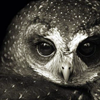So, artwork analysis, I chose Murakami's peice titled "Time":
What I first took notice of was the eyes, the flower rings in the center the most colorful element and contrasting the skull theme in the rest of the piece. It remind me of a depiction of someone addled by drugs- the skeletal frame resembling the wasting body, the green skulls filling the background like a cloud of poison, while the mind experiences happy release. But the flowers resembling Murakami's other peices, instead of drugs, it seems more like someone gazing at 'cute' media, and having the same effect. The poisonous cloud of green skulls then transformed for me into the crowds of people walking through Tokyo.
The second time I looked at the image, what stood out to me was the exaggeration of the nostrils, and the warping of proportions with this skeletal figure- there is no neck, the head is huge, and the length of the spine between the base of the skull and the top of the hips seen at the bottom of the image is impossibly short. The skeleton is deformed like some child-like 'chibi'. Then there's the white skeletal figure upside down off the large one's head- why is white? But skeletons are usually white, so is it only to make us look at the fact that the large on is black? Are we actually looking at the skeleton's shadow, something hidden behind 'reality'? The position of the skeletal figures, ones smaller, one larger, almsot looks like the hand of a clock- or, due to the contrasting colors and position, the dial of a compass. It also remembers a reflection in a body of water immediatly beneath the object being reflected. And indeed, the way the shape wavers almost looks like ripples in water, reflections in some sort of dream- but perhaps this references the title of the piece, "Time", and we are viewing the skeleton's ripples in time. Time and a skeletal figure usually equate to death, but those flower rings remaining present in the eyes seem like life- unless they are some dream that carries on after death.
Of course, after analyzing the piece alone, I had to look at its partner, Bokan:
 Gala opening for TAKASHI MURAKAMI’s retrospective “© Murakami” at MoCA, in LA.
Gala opening for TAKASHI MURAKAMI’s retrospective “© Murakami” at MoCA, in LA.This is interesting because we can't really be sure if the outfits worn by these girls were designed by Mrakami or someone else- just that they were the feminine decor at this Gala he had in Los Angales with Kayne West. Hopefully intended to disturb, the make up is done in a fashion that makes these real women's facial features resemble that of anime girls- white around the eyes to make them larger, with giant black outlines and lashes. edges of the lips paled out to appear smaller, and and cute rounded lipstick to resemble constantly puckered or pursed tiny mouths. The girls themselves don't seem to be chosen to appear identical, but most are caucasion. They seemed dressed to mimic Murakami's "Miss ko2", obviously sexualized and infantialized simultaneously. The facial features are disturbingly warped, despite the aesthetic appeal such stylization can give in animation. The women appear too false in a way that becomes creepy rather than attractive, perhaps too obvious that they aren't meant to represent actual female people, but something impossible.
There's also the obvious juxtaposition of such a glamorous 'maid' outfit, and idea that is meant to represent someone in a position of servitude associated with cleaning. Here, the apron and the rest of classic image is clearly entirely removed from its origin even more so than animated figures, with expensive satin and sequins- a "maid" here is only a woman in "gaze at me" uniform.

